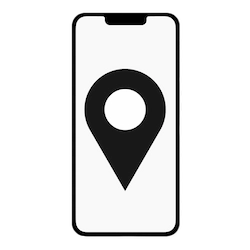How Much Can Someone Sue for a Car Accident?
A Comprehensive Examination
Car accidents are traumatic events, and victims might decide to sue for damages in situations where negligence is involved. The question of how much someone can sue for a car accident is complex, and the amount often depends on various factors.
1. Types of Damages
There are several categories of damages a person might seek in a car accident lawsuit:
- Economic Damages: These are quantifiable costs, such as medical expenses, property damage, and lost wages.
- Non-Economic Damages: This includes pain and suffering, emotional distress, and loss of enjoyment of life. Quantifying these damages can be subjective.
- Punitive Damages: In extreme negligence or intentional misconduct cases, courts might award punitive damages to punish the defendant and deter similar behavior.
2. Determining the Extent of Damages
The amount someone can sue for often correlates with the extent of the damages:
- Medical Expenses: This includes immediate medical costs, ongoing treatment, rehabilitation, and future medical needs related to the injury.
- Property Damage: The cost of repairing or replacing a damaged vehicle and any other personal property.
- Lost Wages and Earning Capacity: These losses might be recoverable if the injury leads to missed work or affects future earning capacity.
- Pain and Suffering: Calculating pain and suffering often involves multiplying the economic damages by a particular factor, depending on the severity of the injuries.
3. Jurisdictional Differences
The jurisdiction where the accident occurs can significantly influence how much someone can sue for:
- Caps on Damages: Some states have caps on non-economic or punitive damages, limiting the amount a plaintiff can recover.
- Fault Rules: In “no-fault” states, suing for minor accidents might be limited, while “at-fault” states might allow more extensive lawsuits.
- Comparative vs. Contributory Negligence: The rules around how a plaintiff’s negligence affects their recovery can vary, sometimes reducing or even eliminating their ability to recover damages.

4. Insurance Considerations
Insurance plays a vital role in determining recoverable amounts:
- Defendant’s Insurance Limits: If the defendant’s insurance policy has a limit lower than the damages, recovering the whole amount might be difficult, especially if the defendant lacks personal assets.
- Plaintiff’s Uninsured/Underinsured Motorist Coverage: If the defendant lacks insurance or has inadequate coverage, the plaintiff’s own policy might cover some damages.
5. Impact of Legal Representation
Having an experienced attorney can affect the amount recovered:
- Negotiation Skills: Attorneys may negotiate with insurance companies and opposing counsel to maximize the recovery.
- Proving Damages: Skilled lawyers know how to present evidence effectively to prove the extent of damages, including potentially subtle or future injuries.
6. Settlement vs. Trial
The decision to settle or go to trial might impact the amount:
- Settlement: A negotiated settlement might result in a quicker payment but could be for less than what might be recovered at trial.
- Trial: Going to trial might result in a higher recovery, but there are additional risks, costs, and delays to consider.
7. Precedents and Similar Cases
Examining previous cases with similar circumstances can provide insights into potential recovery amounts. Courts, attorneys, and insurance companies might reference these precedents.
Conclusion
The amount someone can sue for after a car accident is influenced by a myriad of factors, ranging from the tangible, such as medical bills and property damage, to the more abstract, like pain and suffering. Local laws, insurance coverage, legal representation, and individual case details intertwine to create a complex web that can drastically affect the final number.
While this article provides a comprehensive overview, it’s essential to consult with an experienced attorney who’s familiar with the specific jurisdiction and the nuances of your case. They can provide tailored advice and assist in determining a fair and realistic amount for which to sue.
Note: This article offers general insights and should not be considered legal advice. Always consult a qualified legal professional to understand the specifics of your situation.
